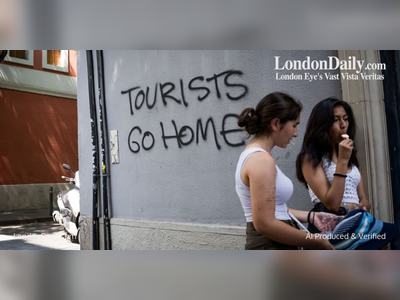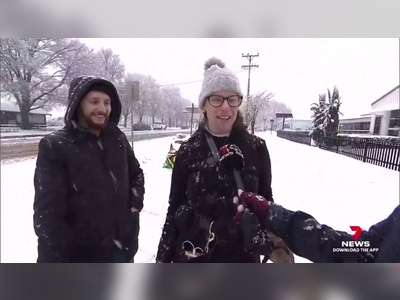British Tourist Dies Following Hair Transplant in Turkey, Police Investigate
A 38-year-old British man dies post-surgery at a private clinic in Istanbul, leading to a police investigation into potential 'reckless homicide'.
A 38-year-old British tourist has died after undergoing a hair transplant procedure at a private clinic in Istanbul, Turkey.
The incident has prompted local police to initiate an investigation into the circumstances surrounding his death, categorizing the case as a possible 'reckless homicide'.
The man had traveled to Istanbul for a five-hour hair transplant operation at the Dr Cinik clinic located in the Besiktas district.
According to reports from local media, the patient experienced severe health complications shortly after the surgery and was subsequently admitted to a hospital for emergency treatment.
His body was later transferred to the Forensic Science Institute of Turkey before arrangements for repatriation were made.
Officials from the British Foreign Office have stated that they are providing support to the family of the deceased and have maintained communication with local authorities regarding the investigation.
Staff at the Dr Cinik clinic, including the surgeon who performed the operation, the anaesthesiologist, and nursing personnel, have reportedly been questioned by law enforcement as part of the inquiry.
The case highlights the growing trend of medical tourism in Turkey, particularly for cosmetic procedures such as hair transplants, which are often marketed at significantly lower costs than in the UK and other Western countries.
The rise in such medical tourism has raised concerns about the standards of care and regulatory practices in certain clinics.
The investigation follows previous accounts from British individuals who have undergone similar procedures in Turkey, some of whom reported unsatisfactory outcomes.
A previous patient, Luke Horsfield, shared his experience of a failed hair transplant at another clinic, claiming the results left him with scarring and bald patches, contrary to expected outcomes.
He noted that despite following post-operative care instructions, he saw no improvement and had difficulty contacting the clinic for follow-up support, which was promised at the time of the procedure.
This incident underscores the potential risks associated with medical tourism and raises questions about the regulatory oversight of medical practices in foreign jurisdictions.
The incident has prompted local police to initiate an investigation into the circumstances surrounding his death, categorizing the case as a possible 'reckless homicide'.
The man had traveled to Istanbul for a five-hour hair transplant operation at the Dr Cinik clinic located in the Besiktas district.
According to reports from local media, the patient experienced severe health complications shortly after the surgery and was subsequently admitted to a hospital for emergency treatment.
His body was later transferred to the Forensic Science Institute of Turkey before arrangements for repatriation were made.
Officials from the British Foreign Office have stated that they are providing support to the family of the deceased and have maintained communication with local authorities regarding the investigation.
Staff at the Dr Cinik clinic, including the surgeon who performed the operation, the anaesthesiologist, and nursing personnel, have reportedly been questioned by law enforcement as part of the inquiry.
The case highlights the growing trend of medical tourism in Turkey, particularly for cosmetic procedures such as hair transplants, which are often marketed at significantly lower costs than in the UK and other Western countries.
The rise in such medical tourism has raised concerns about the standards of care and regulatory practices in certain clinics.
The investigation follows previous accounts from British individuals who have undergone similar procedures in Turkey, some of whom reported unsatisfactory outcomes.
A previous patient, Luke Horsfield, shared his experience of a failed hair transplant at another clinic, claiming the results left him with scarring and bald patches, contrary to expected outcomes.
He noted that despite following post-operative care instructions, he saw no improvement and had difficulty contacting the clinic for follow-up support, which was promised at the time of the procedure.
This incident underscores the potential risks associated with medical tourism and raises questions about the regulatory oversight of medical practices in foreign jurisdictions.










